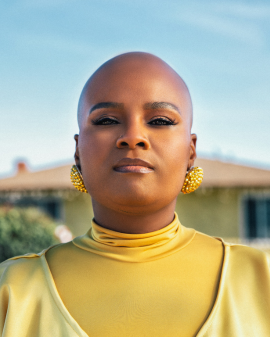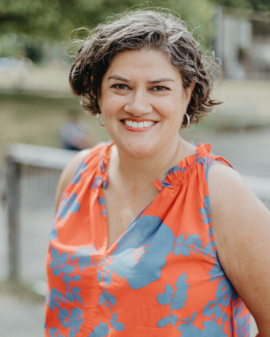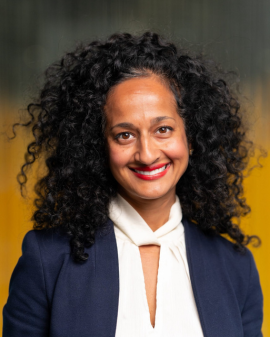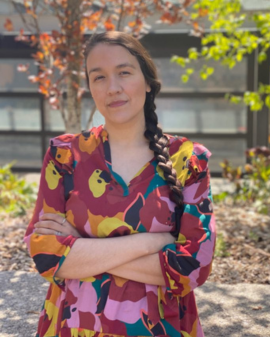Faculty Affiliates
Our faculty affiliates contribute expertise and skills to ongoing projects at the center. Learn more about them and their work below.

Dr. Keeonna Harris
Dr. Keeonna Harris (she/her) is a faculty affiliate in the Department of Health Systems and Population Health at the University of Washington. A Black woman born and raised in South Central Los Angeles, she holds a PhD in Justice Studies from Arizona State University, where her research focused on the experiences of Black women navigating motherhood and mass incarceration. Her work explores health disparities, radical organizing, and the intersection of family and incarceration, with writings published in Salon, So We Can Know, and Supervision: On Motherhood and Surveillance. Her forthcoming memoir, Mainline Mama (Amistad Press, 2025), reflects on Black motherhood, well-being, and resistance. A recipient of the PEN America Writing for Justice Fellowship and the Haymarket Writing Freedom Fellowship, Dr. Harris also works to build networks of support for mothers and children impacted by incarceration, centering mothering as both a form of care and a strategy for justice. Learn more about her work at https://www.keeonnaharris.com/about
Dr. India Ornelas
Dr. India Ornelas (she/her) Dr. India Ornelas (she/her) is a Professor in the Department of Health Systems and Population Health at the University of Washington. Her research focuses on understanding how social and cultural factors influence health, especially among of Latino and American Indian populations. She collaborates with communities to develop health promotion interventions in the areas of mental health, substance use and cancer prevention. She is also interested in breaking and building power in academia to address the systems of oppression that shape our collective work. Dr. Ornelas currently teaches and mentors graduate students in the areas of social determinants of health, health promotion and community engagement. She received a bachelors degree from Brown University, a Masters in Public Health from the University of Washington and a PhD in Health Behavior from the University of North Carolina at Chapel Hill.


Dr. Megha Ramaswamy
Dr. Megha Ramaswamy (she/her) is Professor and Chair for the department of Health Systems and Population Health (HSPOP) at the University of Washington. She leads research on sexual and reproductive health, cancer prevention, and the impacts of mass incarceration. In her research, Dr. Ramaswamy takes community health problems, works with stakeholders who are experts of their own lives, and comes up with plans for how to best implement solutions at individual, practice, and policy levels. She is a passionate mentor committed to fostering diversity in public health. Dr. Ramaswamy is Indian-American born in Lansing, Michigan and raised in, Starkville, Mississippi. She grew up with bedtime stories about racism and politics–why she lived in a town with one public school and the “academy,” an all-white school established against desegregation. These conversations and early developmental experiences shaped her passion to become a keen observer of social injustice. Learn more about her work at drmegharamaswamy.com.
Dr. Jeannie Santaularia
Dr. Jeanie Santaularia (she/her/ella) is an interdisciplinary population health researcher whose work focuses on violence prevention, health equity, and the social determinants of health. She earned her PhD in Epidemiology from the University of Minnesota and her MPH from the University of Illinois at Chicago and previously held a postdoctoral position at the Carolina Population Center at UNC-Chapel Hill. Her research examines how social and institutional forces contribute to violence and how that violence becomes biologically embedded to affect health across the life course. She aims to develop scalable, equity-focused interventions rooted in social context and protective factors. Dr. Santaularia’s passion for public health is grounded in education and social change. Inspired by the words of César Chávez, she is committed to creating a world where people are no longer constrained by unjust systems.

